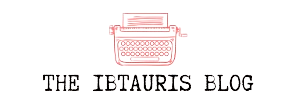In the last part of Writing Revolution, Jamal Jubran discusses his experiences of growing up as an outsider in Yemen with a light and candid tone. He explores how the language has the power to empower individuals.
Reflecting On Childhood And Identity
As I reflect on my life and upbringing, particularly my childhood, I find myself questioning how I endured such pain.
As a child, I lacked physical strength and harbored constant fears of others. This stemmed from being born outside of Yemen and immigrating with my family at just a year and a half old.
My father’s decision to return to his homeland after years of exile in Eritrea compelled my Eritrean mother to leave her country and accompany us, unwilling to be separated from her loved ones.
We returned.
We had absolutely nothing. My father had to rebuild his life completely from the ground up. It’s difficult to describe the depth of poverty we experienced, living crammed together in a single room.
Also Read: Coming Down From the Tower (Bahrain)
Language Education Disparity In Asmara
While my brothers excelled in Arabic, having attended the sole school in Asmara that catered to the children of Arab exiles, I missed out on the opportunity. This was unsurprising as I was still breastfeeding during that period, and my abilities were limited to crying and seeking comfort in my mother’s embrace.
Slowly and painfully, I grew up feeling inadequate in everything I attempted. I couldn’t form a coherent sentence in Arabic and failed to gain admission to school when I reached the appropriate age. When approached by Yemenis or given tasks, my instinctive reaction was to cry.
Fearful of strangers, I constantly sought the company of a family member for protection. My care was shared among my mother and siblings based on their availability. It was unthinkable to leave me alone to face the harshness of the world, especially since I lacked the ability to communicate effectively.
In the neighborhood, other children would bully me without reason, taking advantage of my language barrier and small stature. Then, an event occurred that completely disrupted my life and altered everything.
A Cinematic Revelation: Finding Solace In Fantasy
As my seventh birthday approached, I experienced a significant milestone: my first visit to the cinema. There, I encountered a world that resonated with the idealized version I yearned for—a world that provided solace from the harsh reality where I struggled to find my place.
The movie that captivated me was Indian. Witnessing the hero effortlessly overcome hordes of enemies with a single stroke, I felt a sense of victory previously beyond my grasp. Determined to return, I discovered the route to the cinema on my own, visiting daily.
It became my sanctuary, a realm where I could embody the one-punch hero and seek retribution against the world and the bullies from the alley who tormented me whenever I was alone and defenseless.
What could be more delightful than laying low armies of your foes with a single swing of the fist?
Cinematic Influence And Language Acquisition: A Transformative Journey
The influence of cinema instilled a sense of resilience within me, enabling me to gain admission to school by mimicking a few Arabic phrases I had absorbed from interacting with patrons at the movie theater.
As a student, my frequent visits to the cinema waned, replaced by a burgeoning interest in language. Immersed in my academic pursuits, the visual narratives of the film gradually gave way to the enchantment of written words.
I marveled at the transformative power of arranging letters to create boundless strings of words, each conveying myriad meanings. Though I was a novice in Arabic, embarking on my initial steps, it was evident that my fascination with these letters would endure as a lasting relationship.
Words are power.
I discovered this: despite my inherent timidity and constant harassment from neighbors and peers, I found solace in expanding my vocabulary. This newfound command over words injected a sense of self-worth that compensated for my profound lack of bravery.
While I still struggled to speak confidently, my classmates’ relentless mockery, directed not only at my imperfect Arabic but also at my ethnic background, continued unabated.
Racial Discrimination In Education And Society
In both the school environment and broader society, there existed a noticeable racist bias towards individuals from Eritrea and Ethiopia, particularly those of mixed heritage born to non-Yemeni mothers. This prejudice was primarily rooted in skin color.
I later found out that President Ali Abdullah Saleh’s regime, which took power in 1978 when I was four years old, actively promoted and fueled this racism. The regime operated on a strategy of dividing and controlling the population.
It instilled within me a profound feeling of shame and degradation, driving me deeper into the refuge of cinema and language to heal the psychological scars inflicted by the harsh realities of life.
My advancement through school was sluggish and characterized by numerous setbacks. I had to repeat two years in both primary and middle school. Though challenging, I had little alternative as a newcomer to the language.
Then, a revelation dawned upon me. I realized that my proficiency in writing Arabic could serve as my means of escape from the perpetual state of weakness and vulnerability, shielding me from daily humiliations.
Determined to retaliate against those who belittled me, I resolved to engage in a linguistic battle and conquer them using their own language.
I would resort to writing.
Sanaa, December 2011
Translated from the Arabic by Roger Moger.
Residing in Sanaa, Jamal Jubran actively contributes to the Beirut-based Al-Akhbar English as a journalist, poet, and writer, with his writings being translated and published in numerous global publications. He formerly taught at Sanaa University but was dismissed due to his political involvement. He actively participated in endeavors alongside Nobel Peace Prize laureate Tawakkul Karman throughout the Yemen uprising.
Also Read: Greetings to the Dawn (Tunisia)


